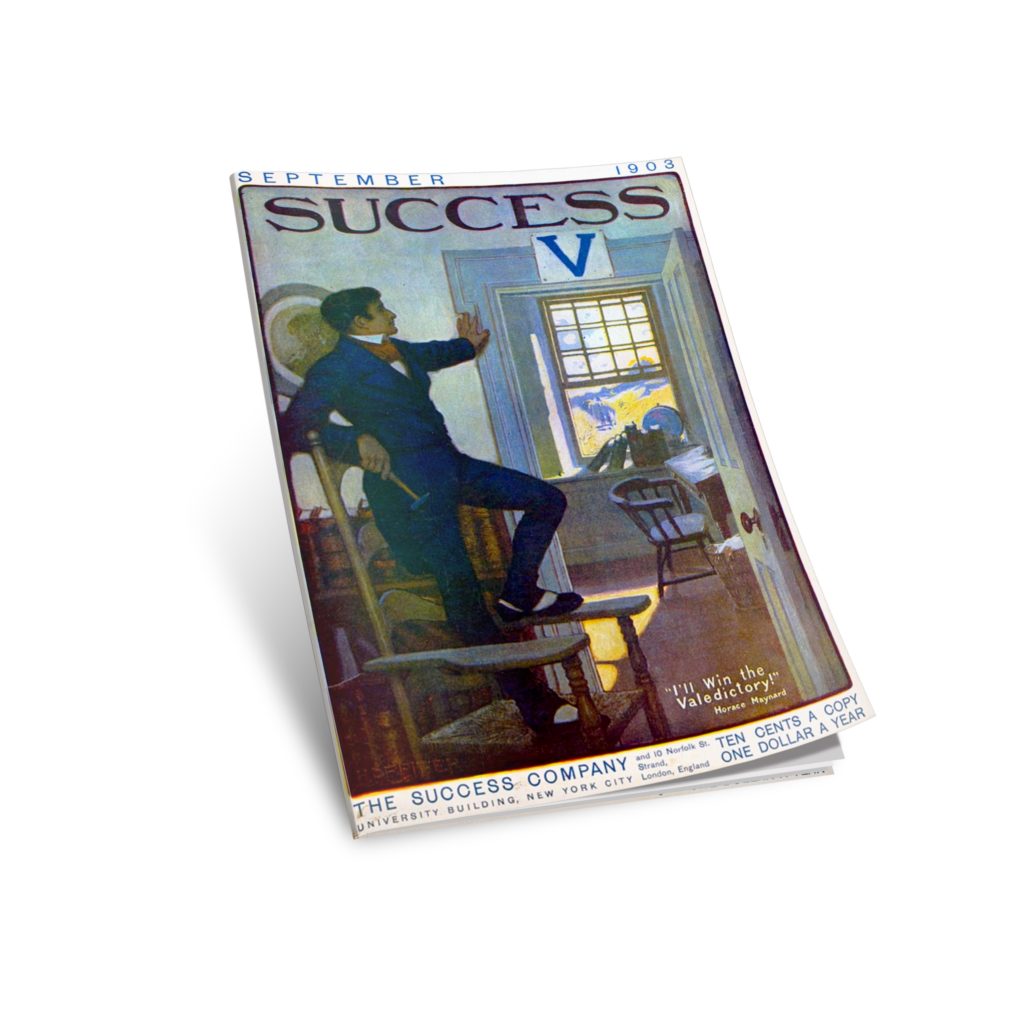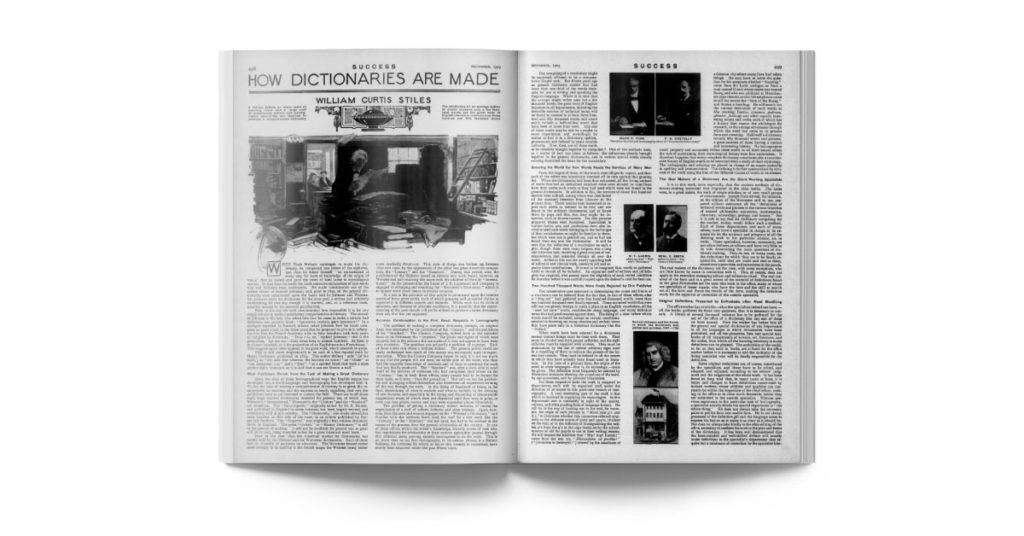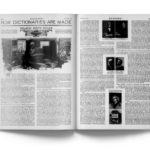When Noah Webster undertook to make the first American dictionary in 1806, he completed two letters of the alphabet before finding himself “so embarrassed at every step for want of knowledge of the origin of words” that he halted and devoted 10 years to etymological studies. In that time, he created the world’s most extensive comparison of root words to date, making considerable use of the work of Samuel Johnson, who wrote the first English dictionary. Up until 1890, all the general dictionaries were constructed upon Johnson’s and Webster’s groundwork.
Publishers of the Century and the Standard both attempted to create an original, complete dictionary. Both publishers, along with managing editors and other staffers, underwent extensive training for the task. In the fixing of hundreds of forms, in the final determining of what to exclude and what to include, in the devising of new features and especially in the trying and discarding of innumerable suggestions—many of which were not disproved until they were in print, or even cast into plates—money and time were expended almost illimitably.

The editors and publishers of a dictionary are keenly aware of the nearly endless nature of their task. The hope of issuing the work on a specified date is deferred so often that the chief editor of one of our great dictionaries periodically reminded his associates that “one great use of a dictionary is to get it published.” Then, when the book is issued, it immediately begins to become imperfect and obsolete.
The task of making an actually complete dictionary has never been accomplished—nor is it likely to. The Oxford English Dictionary, when completed, will be the closest to a complete English dictionary ever attempted—but already there are thousands of words in the letters published that have since come to light or been coined since the work was begun. Whenever there is an entire reprint made of our present larger dictionaries, it will likely be found expedient and necessary to drop a great many words now included to make room for new candidates. This will be done on the realization that for general use, a dictionary need not be a word book of the language but rather a lexicon of all the terms likely to be wanted by the average reader and writer of English.
This article originally appeared in the September 1903 issue of SUCCESS magazine.






